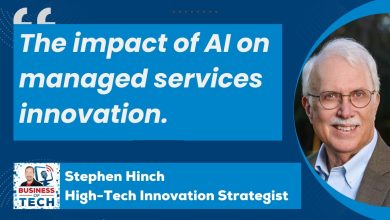AI Agents Could Be 10X Bigger Than SaaS: Why Vertical LLMs Are The New $1 Billion SaaS Opportunities
The Intersection of Ai and Vertical SaaS Presents a Hyper Growth Sweet Spot for App Entrepreneurs.
 In the realm of software as a service (SaaS), a ‘vertical SaaS’ refers to a specialized type of cloud-based software that caters to the needs of a specific industry or niche market.
In the realm of software as a service (SaaS), a ‘vertical SaaS’ refers to a specialized type of cloud-based software that caters to the needs of a specific industry or niche market.
Unlike horizontal SaaS solutions that target a broad range of industries, vertical SaaS focuses on addressing the unique requirements of a particular vertical, such as healthcare, real estate, or legal services.
As AI models continue to rapidly improve and compete with one another, a new business model is coming into view – vertical AI agents.
Vertical Ai
This is an especially potent approach when combined with the opportunity for Ai SaaS ventures. Bessimer writes that the meteoric rise of these businesses over the past 15+ years and the advancements in AI during that same period has set the stage for an exciting new development in the vertical software landscape: Vertical AI.
This all came to a head in 2023, when we saw a new class of LLM-native applications harnessing novel business models and AI capabilities in order to serve functions and even entire industries that didn’t meaningfully benefit from the previous wave of vertical software.
Unlike their predecessors, these vertical AI applications are able to target the high cost repetitive language-based tasks that dominate numerous verticals and large sectors of the economy — such as legal, healthcare, and finance — that were largely out of bounds for legacy vertical software.
Given Vertical AI’s ability to both capture new markets and tap into more sizable TAMs within those markets, they predict that Vertical AI represents an even larger market opportunity than that of legacy vertical SaaS.
The Rise of Vertical AI Agents
Vertical AI Agents are specialized artificial intelligence systems designed to cater to specific industries or tasks. Unlike traditional SaaS platforms that offer broad solutions, Vertical AI Agents are tailored to meet the unique needs of particular sectors, such as healthcare, finance, or logistics.
- Hyper-Personalization: Vertical AI Agents can provide highly personalized experiences for users, leading to increased engagement and satisfaction.
- Industry-Specific Expertise: These agents are equipped with deep domain knowledge, allowing them to deliver more accurate and relevant insights.
- Efficiency and Automation: By automating complex tasks and processes, Vertical AI Agents can streamline operations and boost productivity.
- Scalability: Vertical AI Agents can easily scale to accommodate growing demands within a specific industry, making them adaptable to changing environments.
The Potential for Growth
Given their targeted approach and specialized capabilities, Vertical AI Agents have the potential to disrupt traditional SaaS models and redefine how businesses leverage technology. Here are some factors that could contribute to their exponential growth:
- Market Demand: Industries are increasingly seeking tailored solutions that address their unique challenges, creating a ripe market for Vertical AI Agents.
- Performance: The superior performance and efficiency of Vertical AI Agents can drive adoption rates and customer loyalty.
- Data Insights: By leveraging advanced data analytics and machine learning, Vertical AI Agents can offer valuable insights that drive business decisions.
- Competitive Edge: Companies that embrace Vertical AI Agents early on can gain a competitive edge by optimizing their operations and enhancing customer experiences.
As LLM’s become exponentially better it is clear that vertical AI agents are key to the next generation of billion dollar SaaS companies. In this episode of the Lightcone, the hosts sit down with YC alum Jake Heller, the co-founder and CEO of Casetext (which sold to Thomson Reuters for $650 million in cash in 2023) to discuss what it takes to build a successful vertical AI company and overcome resistance from industry veterans and skeptics.
The hosts consider what effect vertical AI agents will have on incumbent SaaS companies, what use cases make the most sense, and how there could be 300 billion dollar companies in this category alone.
Conclusion
In conclusion, the market opportunity for developing SaaS startup ventures in the field of Artificial Intelligence is vast and promising. By understanding the market dynamics, addressing key considerations, and offering innovative AI solutions through the SaaS model, startups can carve a niche for themselves in this rapidly evolving landscape.
As Vertical AI Agents continue to evolve and demonstrate their value across various industries, it’s clear that they have the potential to surpass SaaS platforms in terms of impact and scalability. By harnessing the power of artificial intelligence in a targeted and specialized manner, Vertical AI Agents could indeed be 10 times bigger than SaaS in the near future.



